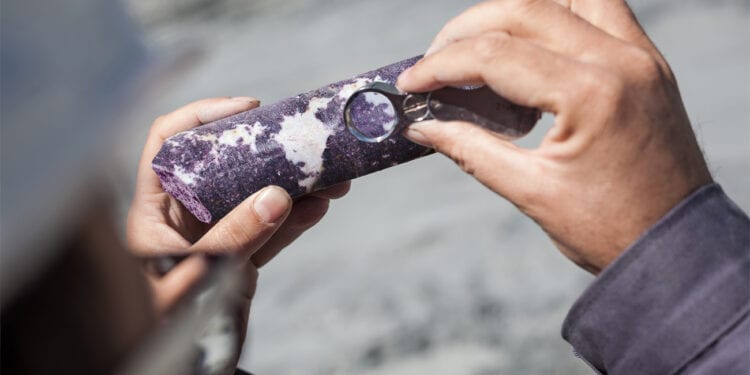LieNA Technology Significantly Improves Metallurgical Recovery Of Lithium
Lithium Australia (ASX:LIT) has revealed that the European Patent Office intends to grant a patent for the first-generation LieNA lithium processing technology that will provide legal protection in nominated European countries for 20 years from the date of filing.
Developed by Lithium Australia, the LieNA process is designed to improve the recovery of lithium from spodumene (the most common hard- rock source of lithium) for use in the production of critical battery materials for LIBs. Improved lithium recoveries can reduce both the footprint and environmental impact of mining and enhance sustainability.
LieNA consists of a caustic digestion process followed by acid leaching to recover the desired lithium chemical. Unlike conventional lithium chemical production that relies on roasting and an acid leach, no roasting is involved, making LieNA a more environmentally sound method of processing spodumene.
Importantly, LieNA can recover lithium from the fine and low-grade spodumene that would, during conventional spodumene beneficiation, report to waste or tailings streams. In fact, the recovery rate of lithium during conventional spodumene beneficiation can be as low as 50%, owing to the constraints of concentrate offtake specifications. Unlike LieNA, such conventional processes are neither amenable to fine feed material nor tolerant of impurities.
The company, in partnership with ANSTO (the Australian Nuclear Science and Technology Organisation), has performed extensive test work on LieNA, demonstrating its ability to process material that cannot be handled by conventional lithium converters.
LieNA can produce lithium phosphate from that ‘waste’ spodumene, with the lithium phosphate then used as direct feed in the production of) LFP-type LIBs – there is no requirement for further chemical conversion first. (It is worth noting that LFP is currently the fastest growing sector of the LIB market.)
The examining division of the European Patent Office intends to grant a European patent for application number 17 836 093.9 (PCT/AU2017/050808), with a priority date of 02 August 2016. Once granted, the Company will have long-term protection and control over the invention for up to 20 years from the date of filing, August 2, 2017, in nominated European countries.
Patent application PCT/AU2019/050773 details the second-generation LieNA® patent application, published under the Patent Cooperation Treaty by the World Intellectual Property Organisation with a priority date of 24 July 2018.
The Company has received a written opinion from the International Searching Authority on the patentability of the application, confirming that the claims are novel and inventive. The application has been lodged in the following jurisdictions.
- Australia – national phase entry has commenced and awaiting examination. < The US – under examination.
- China – national phase entry has commenced and awaiting examination.
- Europe – under examination.
- Brazil – national phase entry has commenced and awaiting examination.
- Canada – national phase entry has commenced and awaiting examination.
“Lithium Australia continues to focus on developing novel solutions to lithium processing problems. Commercialisation of the LieNA process will be an opportunity to improve the sustainability of the LIB industry, which drastically needs to reduce its environmental footprint,” Managing Director, Adrian Griffin, said.
“The improved recoveries LieNA affords could permit the production of more lithium chemical units from the same size of mining excavation – and at a lower unit cost.
“What’s more, LieNA can produce lithium phosphate from spodumene as direct feed for the production of LFP, the fastest growing sector of the LIB market, and that is a major advantage.
“We see an immediate application for LieNA in Australia, given that this country produces well over half the world’s lithium and nearly all of its spodumene requirements, despite significant quantities of the latter never making it into the processing supply chain.
“The problem starts with the very nature of spodumene and the technology currently used to recover lithium from it. That problem could be solved by more efficient processing, and that is our aim.”
For further information please visit: https://lithium-au.com/












